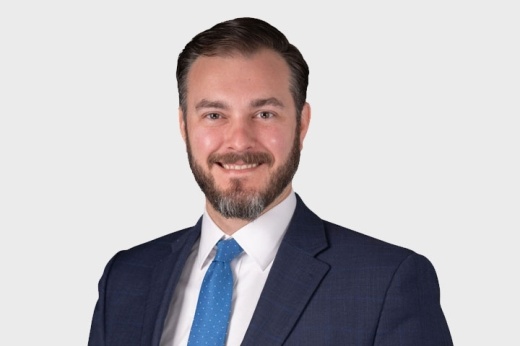What are your legislative priorities for the upcoming session?
Our state has a great opportunity this session, in part due to the very large budget surplus, to make generational investments. When we think about generational investments, we're talking about both the physical infrastructure of the state as well as investing in the people of Texas—our workforce. Community college finance is one of those areas where we believe that there is going to be broad bipartisan support. We believe there will be broad business support for it, and we believe that it will help Texans earn higher wages in the future. Obviously, water infrastructure is in the news today. There is a great opportunity to address this, given the issues that have been popping up in cities like Houston, Odessa, Laredo and Jackson, Mississippi. Our state has taken this question seriously—do we have enough water? That's an important question, and we still need to continue investing and making sure water supply issues are taken care of. This session, I think there's also a chance to make our water systems capable of meeting our growth needs. Do we have the correct pipes? We have so much pipe leakage going on across the state, and that's hurting our supply. Also, are they up to health standards? This is a great opportunity for that conversation to happen. You know, I think there will be areas across all of our pillars of work that have the opportunity to have that kind of big, broad bipartisan push. I think that the budget and how it's spent this session is going to be an incredible opportunity for our state to really improve the quality of life for decades to come.
Is there anything specific regarding energy infrastructure that you would like to see introduced or expanded on as we approach winter?
Specifically talking about the energy grid, one of the big issues that we're seeing isn't just the energy grid, per se, but the challenges impacting the state workforce itself. So, you know, it's not surprising in the current economic environment—low unemployment, wages going up—but the state as an employer is struggling to attract and retain talent. And that includes agencies like the Public Utility Commission, which has been tasked with implementing the market reforms that were passed this last session. So one of the issues that we believe is important is ensuring that state agencies, such as the Public Utility Commission, the Texas Water Development Board and the Texas Commission on Environmental Quality, are out there trying to implement these big reforms and make sure our water systems are safe, and make sure our grid is properly managed, [and] actually have the regulatory staff and attorneys capable of doing that. When you look at them today, they're dramatically understaffed, and they can't retain the staff necessary to make sure that the bills that are passed by the legislature can be implemented with the full force and speed that the people of Texas expect.
What are some things that you would like to actually see happen regarding these things that you've been talking about?
The Legislature has an opportunity to make significant financial investments in these strategies. With community college finance, both changing the formulas and funding those formulas, including the outcomes formulas, were discussed. That is a major opportunity. But when we talk about infrastructure—and the tens of billions of dollars that are available there to put money towards water, towards broadband—these things are making sure that the state can be a competitive employer. They're in investments that are necessary, and that's a key thing that we look at because we can't count on this type of surplus happening again. It is historical for a reason. We've never experienced anything quite like this. What we don't want to do is create a system where we're setting ourselves up for future fiscal cliffs. We want to make sure that this money is being spent wisely and truly invested in those types of items that will have a long-term return on investment for the people of Texas without creating those cost concerns for the future.
Q: What would you like to see happen in the legislature regarding K-12 education?
A: We have an opportunity to continue investing in proven reforms that have been implemented in recent sessions and maintaining that financial commitment to our students and teachers. Obviously, in past reforms, there were large scale increases in teacher pay raises, and teacher pay raises are likely to be considered again. It is important that we maintain our assessment accountability system and continue implementing the [State of Texas Assessments of Academic Readiness] redesign process. There are some new areas that are maybe a little bit below the radar—the Virtual Learning Commission, as an example. Virtual learning was very common during the pandemic, and outcomes were mixed. But one of the things the Legislature has looked at during this past interim is how we could use virtual learning as a pathway to increase work-based learning. In addition, our analysis has shown there's a stark disparity in terms of advanced courses, depending on which community you live in. Rural Texas has much less access to these classes. The Virtual Learning Commission is trying to tackle this head on. This can hopefully leverage the major investment in technology that Texas made during the pandemic, with the ultimate goal that more students can pursue more pathways to success, regardless of where they live in the state.





